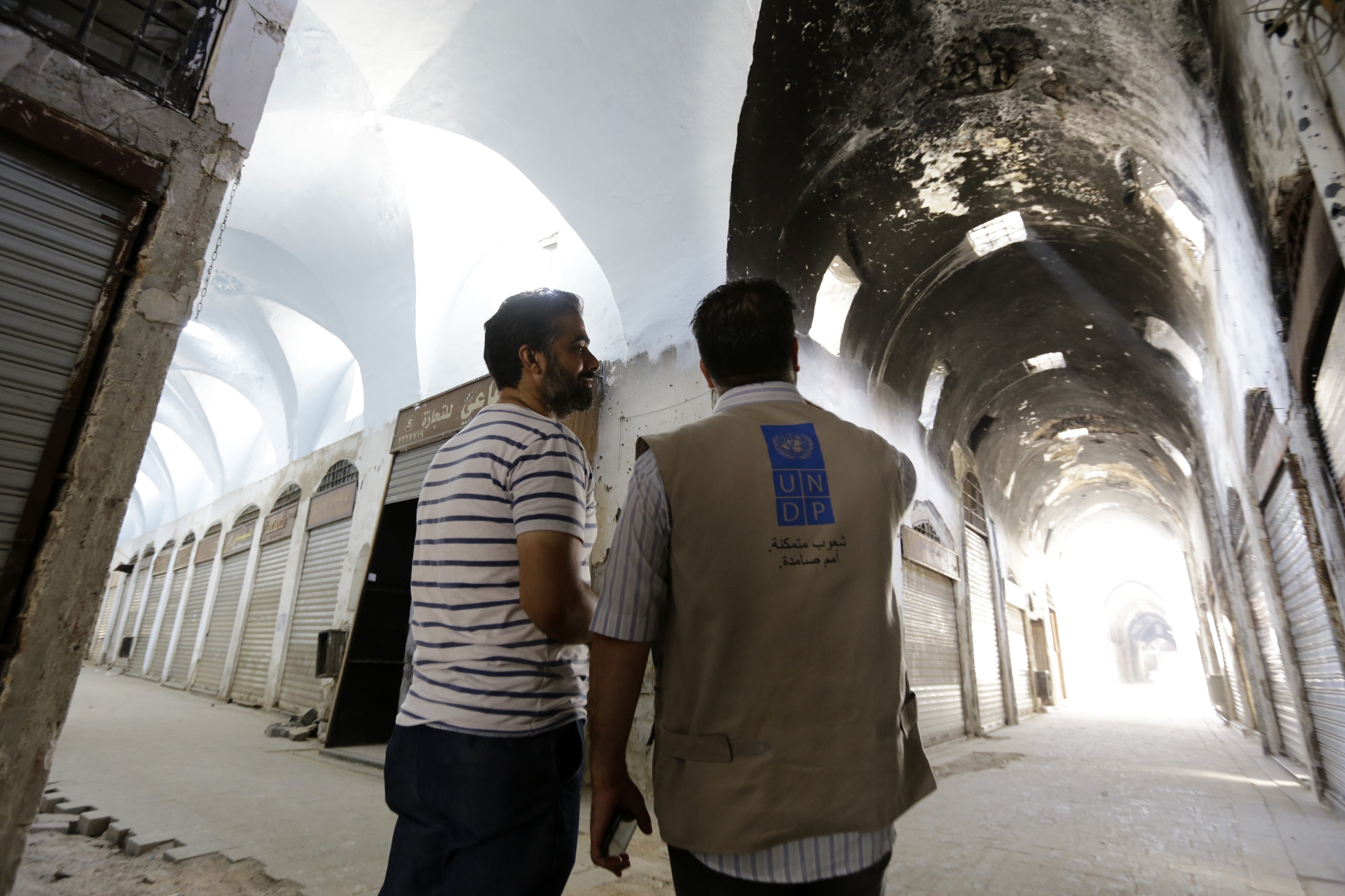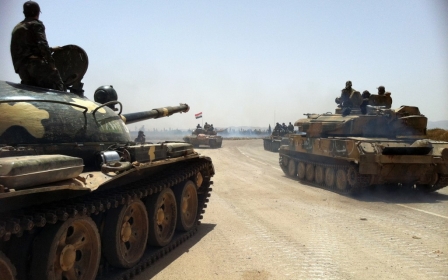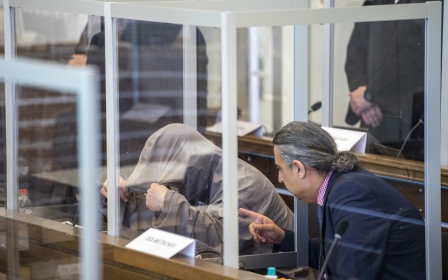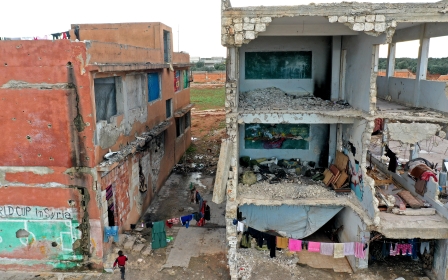UN campaign blasted for 'tasteless' portrayals of Syria's rural poor

The United Nations Development Programme (UNDP) has come under fire for showcasing a “tasteless” campaign video for its latest project in Syria intended to shed light on social issues in the war-torn country.
The video clip, published on Twitter on Sunday by UNDP Syria for the organisation’s Theatre for Change project, was accompanied by a quote from UN Secretary-General Antonio Guterres: "Many women under lockdown for #COVID19 face violence where they should be safest: in their own homes."
In the video, a number of men and women - portraying abusers and victims, and acted out by Syrians - are seen in a darkened, filthy building set in Hama.
"Forty kilometres from the city centre, I come to this place every Thursday to meet a group of people living in it, hoping to help them in any way," a male narrator is heard saying at the beginning of the video.
It goes on to introduce a series of characters, from a teenage boy who has "harassed more than five girls", his father who "works as a bus driver" and married a 14-year-old bride, a "poor lady who eats a lot, when there's food to eat", to a "lonely 40-year-old woman" with a cigarette dangled from her lips.
Stay informed with MEE's newsletters
Sign up to get the latest alerts, insights and analysis, starting with Turkey Unpacked
The clip then ends by stating that "people like this" exist everywhere, and the "real solution" is to "help them get out of this dark place".
The video is meant to "empower youth and provide them with tools through theatre to express themselves”. Instead, it has been called "tone deaf" and generated a wave of outcry on social media.
“That it would pass muster with multiple layers of UNDP bureaucracy says so much about how ill-equipped this agency is for what it claims to be doing,” one Twitter user commented.
“Reinforcing the most damaging and divisive stereotypes in Syrian society, from an organisation that's trusted with millions of dollars to fund development,” another tweeted.
Many have since called for the confusing clip to be taken down, and have questioned how the funding given to the organisation is actually aiding Syrians, who have seen their lives turned upside down by nine years of war.
On its website, UNDP details how the project aims to promote social cohesion and to encourage Syrian youth to express themselves in order to see the “positive change they want to see in their communities”.
However the nature of the campaign has instead drawn criticism for pandering to problematic stereotypes of rural communities which observers have said will only succeed in deepening the social divides in the conflict-ridden country.
Middle East Eye reached out to UNDP for comment but received no reply by the time of publication.
Gender-based violence
The issue of violence in Syria, particularly as a tool of war used against women, has tragically defined the war since it began in 2011.
In 2018, a UN Commission found how thousands of women, girls, men and boys were subjected to sexual and gender-based violence during the war which was used as a tool to instil fear, humiliation and punishment.
According to a report published by the UN's Population Fund (UNFPA) in the same year, Syrian women in refugee camps were being forced to offer sexual favours in return for aid from the UN and some victims were allegedly forced to marry locally hired officials working for the UN and other international charities for “sexual services” in exchange for meals.
Last year, a Syrian Network for Human Rights report concluded that women have been subjected to extrajudicial killings, arbitrary arrests, torture, executions, enforced disappearances, sexual violence, forced displacement, siege warfare, and denial of healthcare and basic services.
Middle East Eye delivers independent and unrivalled coverage and analysis of the Middle East, North Africa and beyond. To learn more about republishing this content and the associated fees, please fill out this form. More about MEE can be found here.




